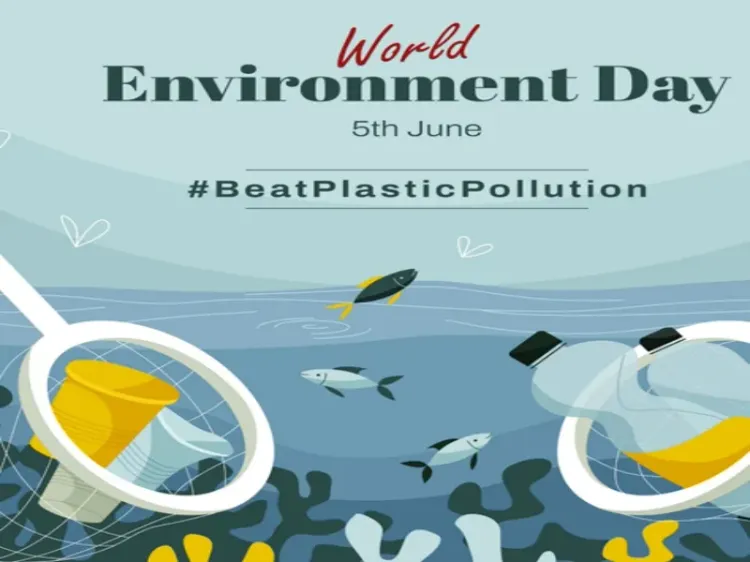How is India Addressing the Challenge of Plastic Pollution?

Synopsis
Key Takeaways
- India is taking decisive action against plastic pollution.
- Strict bans on single-use plastics are in effect.
- Innovative circular economy practices are being promoted.
- Community engagement is crucial for effective waste management.
- Government initiatives focus on sustainability and responsible practices.
New Delhi, June 4 (NationPress) India is making significant strides in the battle against plastic pollution by implementing strict bans on single-use plastics and fostering innovations in the circular economy. This was announced by the government on Wednesday, in anticipation of World Environment Day.
World Environment Day, celebrated annually on June 5, carries the theme ‘Beat Plastic Pollution,’ aiming to eradicate plastic waste.
The government stated, “India's commitment to combatting plastic pollution showcases a robust dedication to environmental sustainability and global collaboration.”
With a focus on responsible plastic utilization, recycling, and disposal, the nation has established a comprehensive legal and policy framework to address the plastic waste challenge.
The Ministry of Environment, Forest and Climate Change, operating under the Environment (Protection) Act of 1986, has introduced several waste management regulations to ensure environmentally sound waste handling.
This includes the Plastic Waste Management Amendment Rules, 2021, which enhance regulations on plastic waste to promote sustainability and mitigate pollution.
As part of these regulations, specific single-use plastic items with minimal utility and high littering potential have been banned since July 2022.
Additionally, plastic bags with a thickness of less than 120 microns have faced a ban since December 2022.
Key provisions also include prohibitions on lightweight non-woven bags and the allowance for states to implement partial or complete bans on single-use plastics and carry bags.
Moreover, sustainable plastic management is being advanced through targeted initiatives aimed at reducing pollution, bolstering recycling efforts, and promoting the growth of eco-friendly industries.
These initiatives include the Extended Producer Responsibility (EPR) of 2022, mandating that companies producing or selling plastic products manage the plastic waste they generate.
Another important regulation is the FSSAI's Food Safety and Standards (Packaging) Regulations of 2018, which establish standards for safe food packaging materials, including plastics.
Importantly, the nation is reinforcing its sanitation and waste management systems through the Swachh Bharat Mission, which operates in both rural and urban settings.
These missions prioritize plastic waste management, scientific waste processing, and community-driven cleanliness initiatives.
The government has engaged local bodies nationwide to initiate impactful changes through innovative and community-centered solutions to tackle plastic pollution.
“With ongoing public engagement, responsible industry practices, and government efforts, India is steadfastly moving to reduce its plastic footprint and ensure a greener future,” the government stated.










